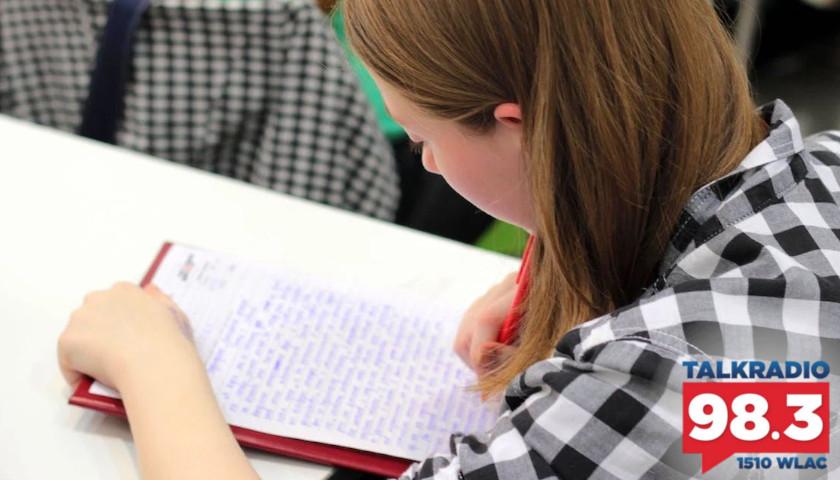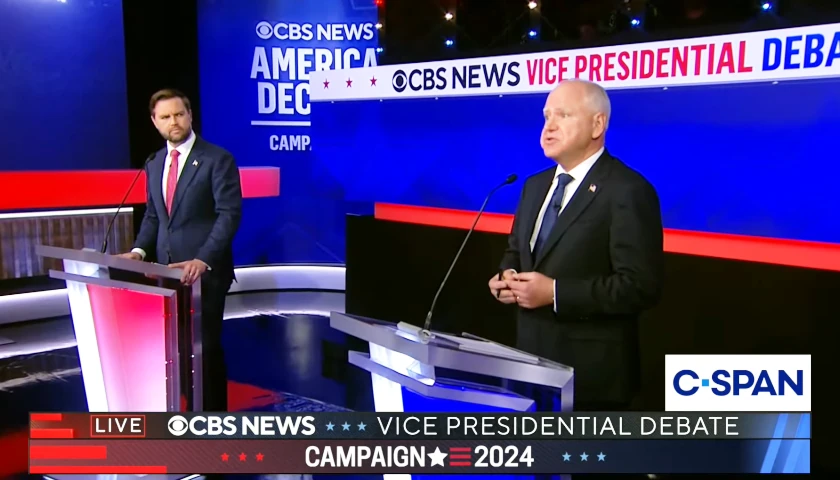Live from Music Row, Wednesday morning on The Tennessee Star Report with Michael Patrick Leahy – broadcast on Nashville’s Talk Radio 98.3 and 1510 WLAC weekdays from 5:00 a.m. to 8:00 a.m. – host Leahy welcomed Phil Schwenk of American Classical Education in studio to describe the difference between a public school and a public charter school.
Leahy: Back in studio, our very good friend Phil Schwenk with American Classical Education. Good morning, Phil.
Schwenk: Good morning. Thanks for having me.
Leahy: You’ve been coming here and talking to us for a little bit over a year now.
Schwenk: That’s crazy. I can’t believe it’s been a year.
Leahy: It’s been a lot of fun. And, of course, you’re very accomplished. I guess I would say my favorite Quaker.
Schwenk: I appreciate that. Thank you. Thank you.
Leahy: You graduated from the University of Pennsylvania. You’re Quaker. But really, a terrific background in education. After you graduated from Penn, you went and taught in public schools in Los Angeles.
Schwenk: I did for a long time.
Leahy: And enjoyed it.
Schwenk: Very much. I like kids, and I like teachers.
Leahy: That’s exactly right.
Schwenk: I get inspiration from them.
Leahy: Then you got involved in charter schools and have been involved in charter schools ever since, and now you are on track to become, I guess you call it principal, not headmaster, principal of American Classical Education, which has applied for charter schools here in Tennessee.
Bring us up to speed on where you have applied to charter schools, which counties, I guess what, five counties, and tell our listeners what the process is and where you are in the process.
Schwenk: The five counties that we’re looking at are Montgomery, Madison, Maury, Robertson, and Rutherford. So you have those five counties. On February first, our applications were due. So it’s a nice behemoth of an application. Over 500 pages.
Leahy: 500 pages.
Schwenk: Yes. It’s quite an application. We have to make hard copies too, so you have to deliver hard copies of this.
Leahy: (Chuckles) It’s you know when you go in and you see the budget of the United States, right?
Schwenk: It’s something like that. Yes. It feels like that. And then that gives them about two months to look over the application.
Leahy: Now you send these to whom, the applications?
Schwenk: They basically are gonna go to the school boards, and they usually have committees that look over these.
Leahy: So the way the law reads here in Tennessee to get a public charter school approved, your first step is to go to the local school board.
Schwenk: Absolutely.
Leahy: And can you explain again to our listeners what exactly is different between a charter school and a K 12 public school?
Schwenk: They’re both public schools. So it’s important to recognize that. Meaning that any students in that county, so Maury County, for example, any of those students could come to our school. But a charter school is by definition it’s an option that the community has desired to have.
So they may have their local school, and they decide that there’s some other type of school that they would like to have. In our case, it’s a classical school. And so what they do is they basically open an independent school within that district.
Leahy: Tell us what a classical school is.
Schwenk: That could be a few hours.
Leahy: You’ve 30 seconds. (Laughter)
Schwenk: It’s basically the method by which we teach. I would actually say it’s something; it’s not new. It’s been around for a while.
Leahy: It’s more traditional.
Schwenk: Yes, it’s more you have a teacher who’s seen as a wise, good person to teach your kids. So it’s more what we call sage on the stage instead of the guide on the side.
Leahy: See, now you’ve been in here many times. That’s the first time I’ve heard sage on the stage versus guide on the side. That’s a great phrase.
Schwenk: If I could take credit for it, that’d be great. But in the world of education, we kind of look at it, we’ve moved away from that, meaning that it’s pushed more to teachers being on the side kind of guiding their students. Historically the teacher’s always been a person of wisdom and virtue, someone to emulate for students. And I think classical education moves more toward that.
Leahy: Got it. So we know it’s a public charter school using a classical education curriculum model.
Schwenk: Absolutely.
Leahy: And so the process is, step one is you go to the local school board. And here in Tennessee, typically there are, they call them local education agencies, I think.
Schwenk: Yes.
Leahy: There’s 145 of them, and each county basically has one, and you’re in front of their 95 counties, and there are some cities. You have now submitted the applications in five counties. Maury County, Madison County, which is the Jackson area, Rutherford County, Robertson, and Montgomery. So those are the five.
Schwenk: Yes.
Leahy: So the applications are before the school board?
Schwenk: Yes.
Leahy: And then there’s another step in the process.
Schwenk: Yes.
Listen to today’s show highlights, including this interview:
– – –
Tune in weekdays from 5:00 – 8:00 a.m. to The Tennessee Star Report with Michael Patrick Leahy on Talk Radio 98.3 FM WLAC 1510. Listen online at iHeart Radio.






Your charter school agency is trying to destroy LOCAL control, BOTH white and black, of Tennessee’s public school system. I see through your rotten rouse!